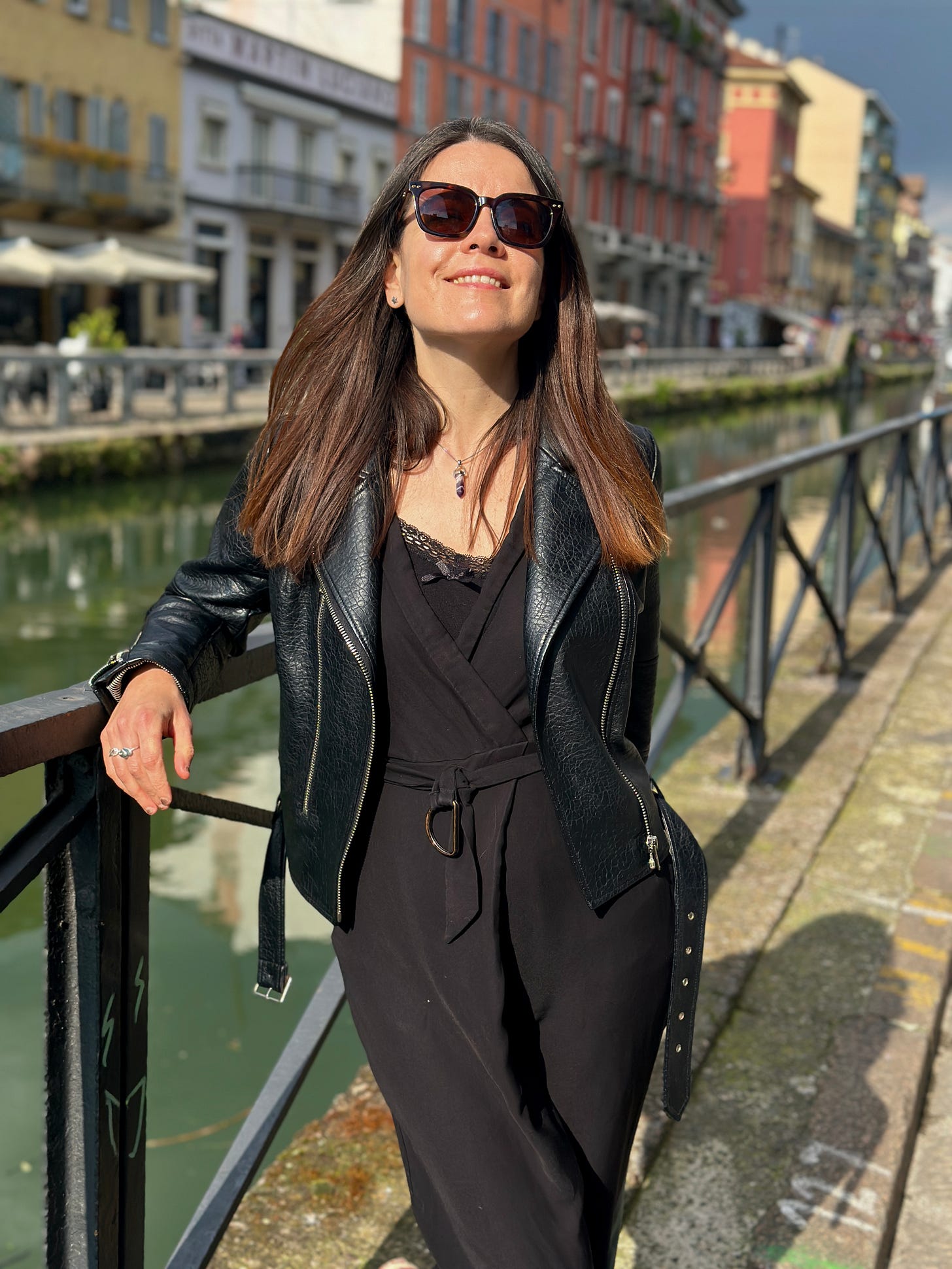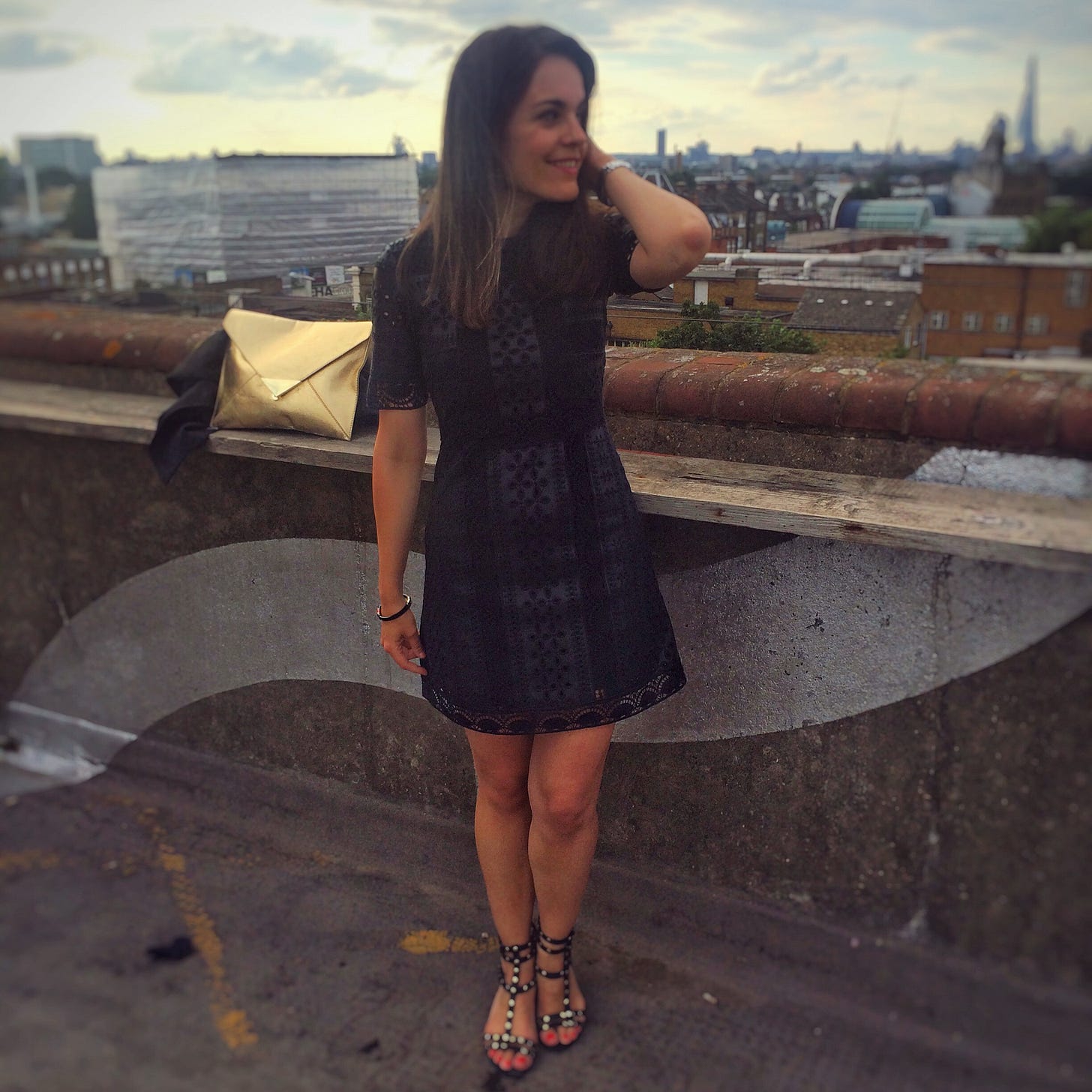"-Where Are You From?" "-I Don't Know."
The hardest question to answer when you have no national identity.
It happens regularly: we’re out and about, living life, and happen to get chatting to some new people. They ask us where we’re from, because that’s something you do in society when you meet someone new. “Milan”, says my husband, and I briefly wish he’d let it end there. Let people think that I’m from Milan too (I’ve been told I have the accent to carry that illusion) and we can just continue with our conversation. But instead he looks over at me and goes, “And she…”
And I prepare to launch into my speech.
Unlike most people, I am not someone who has a national identity. I don’t know what it feels like to “belong” to a country, to feel like you’re “from” somewhere. To have clear-cut roots and origins to connect to. Like a weird and wonky tree, my roots are all over the place.
I was born in Moscow, Russia, to two fully Russian parents (that’s something people tend to specifically ask about). When I was six years old, I moved to Stockholm, Sweden, and have only ever had a Swedish passport. At 19, I left Sweden for Los Angeles, and at almost 21 I moved to Tuscany. I ended up living in Italy for six years, with brief stints in Sweden in between, and then moving to London at 29. I am now 41 and live in Brighton, UK. In total, I’ve been a UK resident for twelve years.
Today, I am at a stage where I have spent a larger part of my life living outside Sweden than in Sweden, yet when people ask me where I’m from, “I’m Swedish” is the easiest answer. Although I’m not, really. I’m only Swedish on paper, and even that is a stretch, as I have been “declared expatriated” by the Swedish authorities. But I do identify with a lot of Swedish mindsets and world views, which is undoubtedly a result of having grown up in Stockholm. And every time I go back, it does feel like home - or at least what I understand home to be.
Saying that I’m Russian is a tricky road to go down. In many ways, I really am. I come from a Russian family, we speak Russian, and I spent my childhood and teenage years celebrating Russian holidays, reading Russian literature, and eating Russian food. But does this make me Russian today? I’m not sure. If I woke up in Russia tomorrow, it wouldn’t be much different from waking up in Indonesia, Kenya, or New Zealand - a country that has very little to do with me. If you ask me to name one area of Moscow, I will draw a blank. I don’t know local pop culture or slang. I have no idea about Russian celebrities, TV, music, or mentalities. And I may speak Russian, but forget about using it at work - turns out that speaking to your mum on the phone doesn’t do much to prepare you for translating press releases or doing radio interviews. My conversational Russian may be fluent, but my working Russian is subpar.
The Russian identity also comes with a disclaimer: for a while now, I have felt the need to state the fact that I stand with Ukraine, vehemently oppose homophobia, and in other ways reject many of the politics that my native country has become known for. This is part of what’s jarring to me about having a national identity at all - the burden of carrying “your” country’s political stance and questionable traditions on your shoulders. I’m thinking of when one of my closest friends, who is Italian, came to visit me in Sweden and countless people grilled him on Berlusconi and on why Italians live with their parents until midlife. I don’t feel like an ambassador for anywhere, and don’t see why, just because I was born in a specific spot of the globe, I have to “represent” that part of the world to others.
And speaking of Italy, the country that has welcomed me with open arms. The country that’s perhaps the most eager to claim - or at least accept - me as their own. I am married to an Italian man, and most Italians around us see me as Italian, too. Years ago at an old job, I was chatting to a colleague when she mentioned that there were “four Italians” in our London office. I was confused as to who the fourth person was. “You,” she said. I have had it confirmed to me by several Italian friends that they see me as Italian. There are many moments when I am reminded of my un-Italianness - like when they reminisce about cartoons they watched growing up. Who on Earth remembers things like that? Italians, that’s who - but there are also countless instances when I feel similar to them. For example, meeting a fellow Swede in other parts of the world most of the time results in a brief, stilted two-minute conversation followed by never speaking again. On the other hand, when my husband and I met an Italian couple in Mexico, we ended up spending the entire afternoon with them, chatting like old friends. The warmth and open-heartedness of Italians is similar to that of Russians, and it is something I miss and crave in places like Sweden and the UK.
After almost twelve years in the UK, I can safely say I will never feel British. Recently, a friend asked me if I will ever apply for UK citizenship, and I felt very confident in my “no”. The main reason is simply that it costs a fortune, but that’s not the whole story - I just don’t feel English enough. I will always feel like a transplant here, like an animal species that’s been brought into a certain area that’s not their original habitat. But that’s not a bad thing. Last week, I stood in the street among 3,000 other Brighton residents at the counter-protest in response to the disgusting far-right terrorism that the UK has been experiencing. The counter-protest was a celebration of diversity. There was music, drumming, chanting. There were families, young groups of friends, older couples. People of all skin colours and ethnicities. As I stood there, any fear and uncertainty melting away, I was reminded that even if I’ll never be British, I’ll always be a little bit of a Brightonian. No matter where I end up.
As someone who can’t really relate to having a national identity, I’ve always been baffled by the concept of borders and struggled to understand hostility towards foreigners. I’ve never felt protective of a country, or proud of a country. Instead, I’ve always had a curiosity towards people and cultures - which is part of what has always pushed me to travel and kept me open to the new and unknown. As a child, having just arrived in Sweden, I loved playing with Swedish children as well as other foreign kids - I had friends from places like Somalia and Bangladesh, and despite not being able to speak each other’s languages, we understood each other. It’s a pity that with age, that understanding fades away somewhere behind a passport.
My husband’s birthday is coming up. Among the list of invitees are friends from Italy, Slovenia, Russia, Mexico, Greece, France, Lithuania, Morocco, Lebanon, Spain, and the UK. We will sing Happy Birthday in a variety of languages and many accents will ring around the table. Including my own can’t-quite-place-it blended pronunciation that, alongside my international identity, is part of what makes me me. And I wouldn’t have it any other way. My countries, cultures, and languages have all contributed to making me a whole, complete person. I might not really know where I’m from, but I know who I am.
(oh, and when it’s the football world championships, there’s no question of whom I support. It could ever only be Italy. No doubt about that.)
All photos by David Camilli aside from the Russia photo, which was taken by my former colleague Harriet Barclay; and the Stockholm pic, which is by my dear friend Lena Kirian.







Wow, so many interesting points. I know what you mean about not feeling like you should have to represent any country. As a Canadian, I never felt like I had to stand up for my country, but lately, I'm mortified and ashamed about how they are handling and engaging in certain conflicts. As for Spain, even if I live here my whole life, I will never be Spanish. I like Spanish people, but there are many cultural differences and ways of interacting that are just too different.